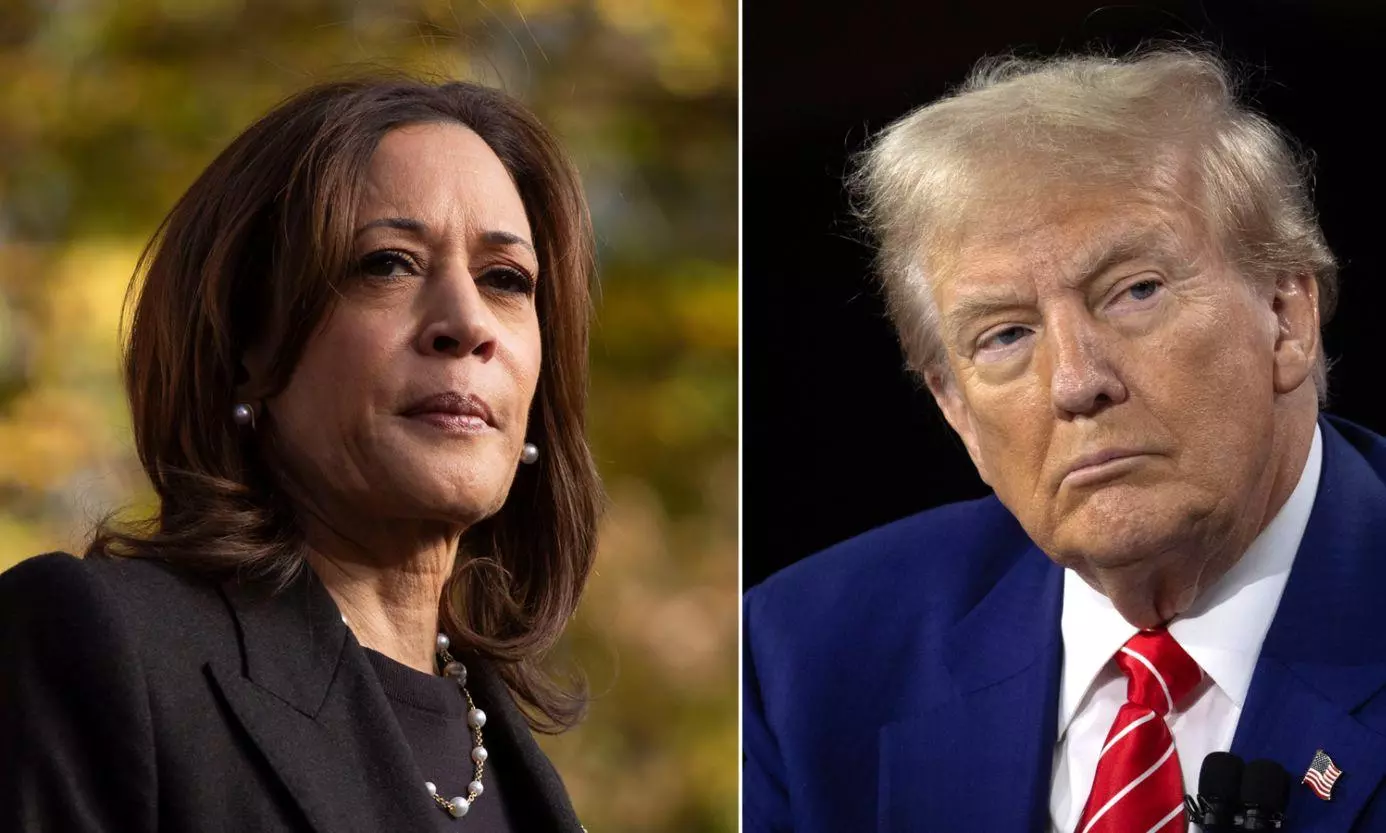
Repercussions of the Republican victory
text_fieldsA few days ago, it was a surprise that William Lewis, CEO and publisher of The Washington Post, owned by Amazon billionaire Jeff Bezos, announced that The Washington Post would not endorse any presidential candidate in any presidential election. Lewis wrote, “ We are returning to our roots by not endorsing presidential candidates. This is our tradition. Our job at The Post is to provide nonpartisan news to all Americans through our newsroom, and thought-provoking opinions from our team of opinion writers to help our readers form their own opinions.”
When the editorial executive of this major global American newspaper wrote and announced this, the readers, anyway, suspected that it was a tactical move. They wondered, “What could be the motives behind this move?” The observers easily guessed that it was a preemptive move by the newspaper’s owner Jeff Bezos, to avoid hostility with Trump, if he reached the White House. The Amazon tycoon wanted to protect his interests during the Trump era. This major shift by the newspaper was not well received by its hard-line writers. They are mainly Democrats. They translated their position into a statement signed by a number of the newspaper’s senior opinion writers, including David Ignatius, Eugene Robinson, Dana Milbank, Jennifer Rubin and so on. The signatories described the decision as a “grave mistake.” Now, we understand that the Amazon boss was right in his game. The question remains: Was he terrified of retribution from a bully in the White House?
Trump snatched a valuable victory in four of the seven states - Pennsylvania, Georgia, North Carolina and Wisconsin - which was enough to give him more than 270 electoral college votes, the threshold necessary to win, while he advanced in Michigan. “This is the greatest political movement in history, “ Trump said in his victory speech, which he delivered surrounded by his family and campaign team in Florida. “ We will heal our country, solve our border problems, and end our wars,” he added. He overcame the obstacles that no one imagined and achieved a victory that America had never seen before. The restoration of the Senate and maintaining the control of the House of Representatives are unprecedented mandates. This helps Trump to implement his electoral programs with the least possible obstacles. The results show that his bet on the economy and immigration was successful, and he was able to make a slight inroad among women and ethnic minorities in some swing states.
Donald Trump tempted the voters by telling them that he would cut taxes. Could it be likely, given the growing size of the government debt? Kamala Harris spoke about social welfare and promised to increase government spending on health care, education, infrastructure development, the environment, and increased unemployment compensation by raising the minimum wage to $ 15 an hour. This could be achieved, according to her, only by raising taxes. But, the Republican response was that such spending would come from the pockets of citizens. Hence, people would not be burdened by additional taxes. We are going to see how this would happen.
The issue of illegal immigrants: Trump turned this into the most important issue and made border security his first promise. He promised to strictly enforce the deportation of millions of illegal immigrants “to protect American sovereignty.” Harris called for reforming the immigration system and facilitating the granting of citizenship to illegal immigrants, and considered them important to the American economy. But, the Republican platform called for “a shift to a merit-based immigration system, whereby immigrants are admitted based on skills and economic contributions, rather than family ties or humanitarian need.” Abortion was another important issue that could defeat Trump. The Republican Party was pushing an agenda of prohibiting abortion, which the feminist community opposed. But, Trump succeeded in narrowing the dispute by saying that each state should decide what it sees fit.
In foreign policy, Trump embraces, “America First,” putting national sovereignty and American power ahead of collective commitments. He is not a fan of NATO, an approach that is different from his party’s. Republicans often prioritize global military superiority, increased defence spending, and the use of military force when necessary to protect national interests. A foreign policy report has revisited Trump’s relationship with Russia. After years of investigations by various government agencies, from the FBI to the Justice Department to Congress, there is still much mystery about the nature of the relationship. It is still unclear whether Trump’s affinity with Russian President Vladimir Putin is driven by mutual interests, a personal admiration for authoritarian regimes, or something more sinister. The report, written by the newspaper’s columnist Michael Hirsch, asserts that Russia directly interfered in the current US elections to support the Trump campaign, using advanced techniques including artificial intelligence and fake media sources.
Anyway, Western leaders raced to respond to the return of Donald Trump to the White House with a powerful mandate to put his policy of “America First” into action once again. But many of the public congratulations, according to the reports, could do little to disguise the private foreboding of what the next four years will look amount to for European security, populism and the world economy.
There are many contenders, close allies of Trump, seeking top roles in the administration. Mike Pompeo, a former CIA director and secretary of state, is one among them. He is a staunch supporter of Israel and a sworn enemy of Iran. Could he be probably the Secretary of State or Defence? Richard Grenell, an ex-Fox News contributor who is among Trump’s closest foreign policy advisers, is probably in the running for Secretary of State or other top foreign policy and national security posts. A senior policy adviser in the early part of Trump’s first term who was the chief architect of the Muslim travel ban, Stephen Miller is expected to be back in the White House. He may bring, as an anti- immigration extremist, the largest mass deportation in US history.
For Arabs and the Middle East, whether it is a Republican or a Democrat win makes no difference. This has been the bitter experience in the Arab world with successive American administrations over many decades. This is especially true with regard to the American position on the major Arab issue, the Palestinian land. What the Biden administration has done is not only a crime against the Palestinian people, but against all Arabs. Its participation in the war of extermination in Gaza shows contempt for Arabs and boundless disregard for any Arab interest. This could be overcome only by realizing their strengths and weaknesses. Firstly, it is the Arab weakness, impotence and fragmentation, is what encourages Americans, Democrats or Republicans, to underestimate them, their interests and even their human values. It reached the point of participating in the genocide of Gaza! Secondly, now it is time for them to stop waiting for any American administration, whatever it may mean, or any country or power in the world, to favor them with positions or policies that take into account their interests. It is time for them to bet only on their own strengths, capabilities and potentials.

























